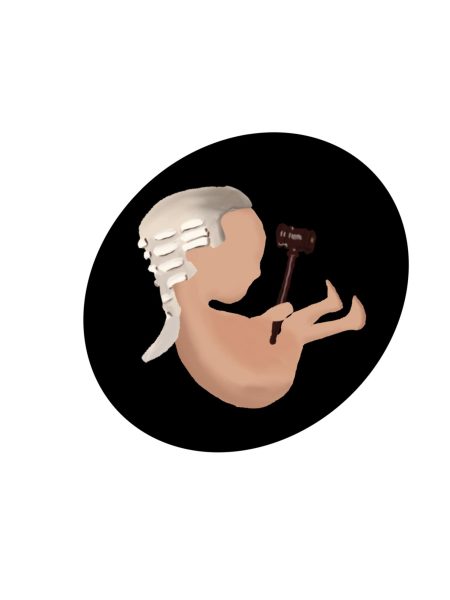Trump’s acquittal of impeachment: Where do things stand now?
February 19, 2021
Jan. 6: Storming of the United States Capitol
On Jan. 6, 2021, the United States Capitol was stormed upon by a mob consisting of mostly Trump supporters. Between Jan. 5 and 6, thousands of Trump supporters came to his rally where he’d claim that the 2020 election was stolen from him unfairly and demanded that both Congress and Vice President, Mike Pence, overturn the election votes. It’s been reported that Trump had incited the crowd into a frenzy by suggesting the need to “fight.” Furthermore, he stated, “We want to go back, and we want to get this right because we’re going to have somebody in there that should not be in there and our country will be destroyed, and we’re not going to stand for that.”
Eventually, the fired-up crowd marched to the Capitol and breached security yelling things such as “Hang Mike Pence!” or yelling general statements in support of Trump, and by 2:00 p.m., the mob had breached the Capitol building armed with body armor, radio systems, and other mechanisms to ensure the efficient breach of the Capitol. During this time, the 117th Congress was scheduled to meet jointly to count the Electoral College results and announce a winner. However, this process was interrupted by rioters, leading Congress to evacuate the building.
In the evacuation process, it’s important to note the actions of officer Eugene Goodman who had bravely diverted the attention of the angry rioters alone and away from the Congress chambers.
At the end of this, it was reported that five people died, and 140 people were injured as a result of the Capitol breaching riot.
The Charges of the Impeachment:
This incident was the catalyst for the second impeachment process that Donald Trump would have to go through within his first term as president. However, this time it was under the charge of inciting insurrection. On Jan. 13, 2021, the House announced its decision to impeach the president, with 222 Democrats and 10 Republicans voting yes to impeach. This led to the next set of events with Senate trials and the outcomes of that.
Why Impeach Trump Now?
There were different views as to whether or not Donald Trump should be impeached. One of the more prevalent ideas was setting a precedent. Never before in the history of the United States had a president attempted to incite an attack on the Legislative Branch (or any of the branches) of the United States, and this impeachment would be used as a precedent to outlaw that kind of behavior. On the other hand, others thought it was too late to impeach the president as he was already out of office. However, a counterargument many had to this was that if Trump was to be impeached now, then he would be barred from running for office in the future.
The Senate Trials
Starting on the week of Feb. 8, 2021, the impeachment trials began. Normally the impeachment process would take immediate precedence over anything else; however, the new president, Joe Biden, wanted to push forward COVID-19 relief efforts at the same time. In doing so, he did not actively participate in much of the impeachment hearings, and until Feb. 13 that Trump was acquitted of his crimes.
According to votes, seven republicans had voted yes, leading to a 57-43 vote. However, this Republican party was a lot more reluctant to speak upon this outcome as compared to the first impeachment trials. Mitch McConnell, the current Senate Minority Leader, had stated that Donald Trump was “practically and morally responsible” for riots, however, argued that because Trump was no longer president, he was not in the position to be impeached. There were Republicans on the other side of the spectrum that stated they believe that Trump was not responsible for the riot on Jan. 6 and hopes that he will come back for reelection in 2024.
So What Now?
Trump’s reaction has been quite emphatic as he has called the Impeachment trials a “witch hunt” and has indicated his future intentions to stay in the public life stating, “our historic, patriotic and beautiful movement to Make America Great Again has only just begun.”
But there are other things the results of the trials imply. They highlight the turbulent state of the Republican party, as shown by many differing views of notable party members. Lindsey Graham, South Carolina’s Senator, has vehemently denied and condemned Mitch McConnell’s statements about Trump’s involvement in the riots. With this, it’s harder to see the union with the Republican parties’ future motives.
The trials also highlight how Congress members don’t view themselves as a moral compass for the Nation. While many aren’t questioning Trump’s involvement with inciting the riots, they were reluctant to criminalize him as they didn’t feel that they were in the position to do so and wanted to leave this case to the federal law instead.
Whether or not you agree with the outcome of the trials, Donald Trump is eligible to run again in future elections despite the overwhelming evidence condemning him of insurrection. This situation pointed out some questionable stances that our Congressmen take towards both this issue and how they view their position overall.











